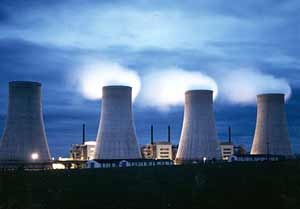In the wake of a report last month citing spiking costs and drawn out decommissioning procedures at Britain’s Sellafield nuclear site has taken on 500 new staff to quicken the tempo of clean up efforts of the facility’s biggest hazards
The Nuclear Decommissioning Authority (NDA), which last month was criticized by the UK’s fiscal watchdog, the National Audit Office (NAO), for overspending on decommissioning projects to neutralize the hazards posed by the Cold War site, said the new staff would work to clear up the sites most hazardous areas, the BBC reported.
“This is good news that they are speeding up their decommissioning efforts,” said Bellona general manager and nuclear physicist Nils Bøhmer. “Our position has always been that decommissioning at Sellafield should be carried out as quickly and safely as possible.”
The Sellafield clean up is scheduled to be completed by the end of the decade.
The NDA said it would be filling most of the new clean up jobs local, which the local Cumbria community that hosts the site greeted warmly.
Elaine Woodburn, the leader of the Copeland Borough Council, located in Cumbria, told the Irish Independent: “This is a win-win situation for the local area. The new jobs will provide a major boost for Copeland and its residents, and will also help ensure that the plant is dealing with the biggest hazards, which is something that the council has long advocated.
NDA chief executive John Clarke told the BBC that, “The creation of these 500 new jobs is excellent news for west Cumbria and will make a significant contribution to accelerating the cleanup of the high hazard areas of Sellafield – the NDA’s number one priority.”
Energy Minister John Hayes also welcomed the news, adding: “The announcement of 500 jobs at Sellafield shows the immense contribution of the nuclear sector to the UK economy, in particular that of west Cumbria.”
Sellafield, along with other ageing UK nuclear sites, is being decommissioned ahead of a planned investment in new power stations.
Sellafield is the bread and butter of the Cumbria area, and employs some 10,000 people.
Hazards recently identified
The National Audit Office report, however identified several hazards at Sellafield, saying inspectors found some of the older buildings on site posed a risk to the environment.
The NAO also said in its report that for 50 years, the operators of the Cumbria-based installation failed to develop a long-term plan for waste, and that costs for decommissioning site were overrunning targets.
It also went on to state that, “any significant containment failure, particularly in legacy storage ponds and silos, could result in highly hazardous radioactive material causing enduring contamination,” and added that some of the older facilities at the site have “deteriorated so much that their contents pose significant risks to people and the environment”.
The NAO also concluded that cleanup projects at Sellafield have so far been “poor” and that there are “significant uncertainties and scheduling risks.”
The NAO report summed up that there is “considerable uncertainty over the time required and cost of completing facilities to treat and store highly radioactive material held in deteriorating legacy ponds and silos.”
In an unrelated event, Sellafield Ltd is facing prosecution over claims that it sent a small amount of low level radioactive waste to a standard rubbish landfill, which allegedly took place in 2010. The case will be heard before the Workington Magistrate’s Court on December 12.




